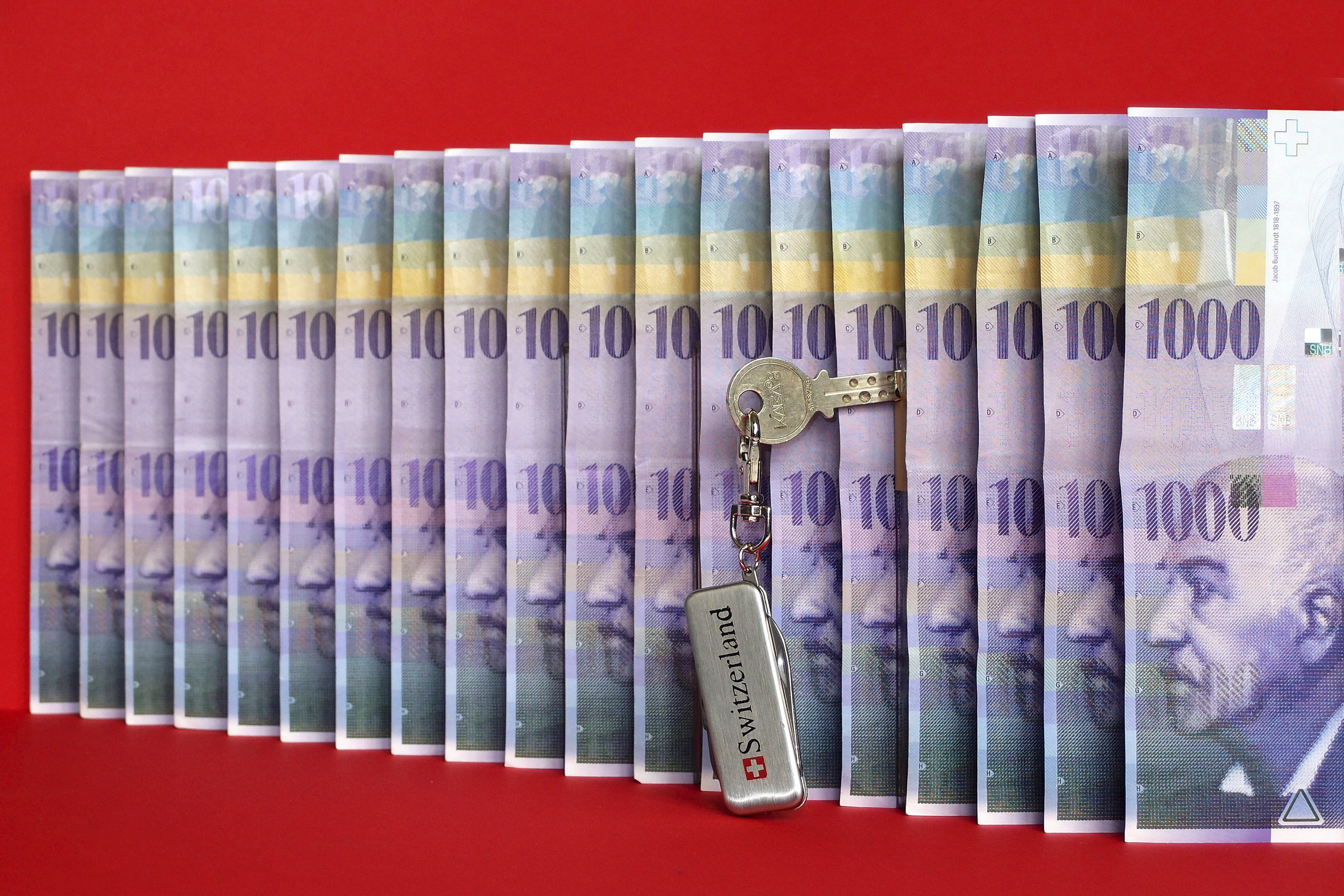
Raiffeisen bank breaks ranks over tax dispute

The head of Switzerland’s third largest banking group has called for the country to bow to international demands for an automatic exchange of tax information.
Pierin Vincenz, chief executive of Raiffeisen Switzerland, is the first major Swiss banker to openly advocate unrestricted sharing of client data with other countries. Switzerland is resisting such a move, which would undermine banking secrecy laws.
Vincenz first mooted his proposal in the Swiss Sunday newspaper Sonntag and outlined his views further in Tuesday’s edition of the Tages-Anzeiger newspaper, saying there should be no “taboos” on the subject.
Switzerland has been placed under increasing pressure in recent years to end its global status as a haven for foreign tax dodgers.
The Swiss government was forced to hand over UBS client data to the United States last year after the bank was caught assisting tax evaders. Switzerland is now poised to transfer a further batch of coded information to the US after other banks came under suspicion.
Fragmented response
Vincenz said it was time to bow to the inevitable conclusion that the European Union would force a similar deal in future.
“There will be a form of automatic information exchange with the US,” he told the Tages-Anzeiger. “If the US gets the details of thousands of clients, then Europe will want the same.”
Vincenz went on to criticise the fragmented Swiss response to a variety of threats and demands from the US and Europe.
The Swiss government has generally lowered hurdles for handing over client data to foreign tax authorities that are investigating suspected evasion cases.
Separate deals
But Switzerland has steadfastly stopped short of meeting demands to automatically transfer such information if no suspicion of crimes exist. The government is also implacably opposed to so-called “fishing expeditions” that call for information with little or no evidence of wrongdoing.
Last year, Switzerland concluded deals with Britain and Germany that would compel Swiss banks to collect taxes on the assets of clients from those countries unless they could prove they were tax compliant.
But the treaties could well collapse under the combined weight of German parliamentary disapproval and legal objections from the European Commission.
Earlier this week, the Swiss government came up with a different plan to police its own banks to make sure that they only took assets from tax compliant sources.
“Suddenly everyone is talking about a clean money strategy and everyone means something different,” Vincenz told the Tages-Anzeiger.
“We really have to show that Switzerland is serious about its clean money strategy. And that will only happen when such a strategy attracts international support.”
Wegelin assets
Vincenz warned that important trading partners, such as India and Brazil, could start to exert more pressure on Switzerland in future unless a global tax evasion solution was found.
The Raiffeisen boss called for the formation of a steering group of politicians, bankers and legal experts to find a solution to the problem – along the same lines as the “too big to fail” committee that reformed financial regulations in the aftermath of the financial crisis.
In January, Raiffeisen announced that it would buy up the wealth management business of bank Wegelin. Switzerland’s oldest private bank sold out to the cooperative after folding under the pressure of the ongoing US tax probe.
Before selling to Raiffeisen, Wegelin stripped out the contentious US offshore business which was retained by the bank’s partners in their continuing legal battle in the US.
UBS became the first Swiss bank to fall foul of US justice when it was fined $780 million in 2009 for aiding and abetting tax evaders.
The following year, the Swiss government agreed to hand over nearly 4,500 UBS clients to the US authorities. The deal was ratified by parliament last year.
The US Department of Justice currently suspects 11 other Swiss banks or the Swiss-based operations of the same offences. More seriously, some are alleged to have poached clients from UBS.
One of those banks, Wegelin, announced it would sell most of its business to the Raiffeisen banking group in January – effectively marking the end of Wegelin.
The following month, the US indicted Wegelin for aiding and abetting tax evaders, the first time a foreign bank has been formally charged in such a way in the US.
In Europe, Switzerland attempted to ease calls for an automatic exchange of information by cutting deals with Britain and Germany to instead pay a withholding tax on client assets.
The treaties look likely to be rejected by Germany’s parliament while the European Commission has threatened legal action if they come into force.
Germany, Britain, France, Spain and Italy look on course to conclude a deal with the US on complying with a new US law called the Foreign Account Tax Compliance Act (Fatca).
Fatca would force all countries to automatically hand over information on US citizens holding accounts with their banks.
Experts agree that Switzerland will have little choice but to also comply with this strict legislation that will come into force next year. There are also fears that the EU may come up with similar legislation.

In compliance with the JTI standards
More: SWI swissinfo.ch certified by the Journalism Trust Initiative













































You can find an overview of ongoing debates with our journalists here . Please join us!
If you want to start a conversation about a topic raised in this article or want to report factual errors, email us at english@swissinfo.ch.